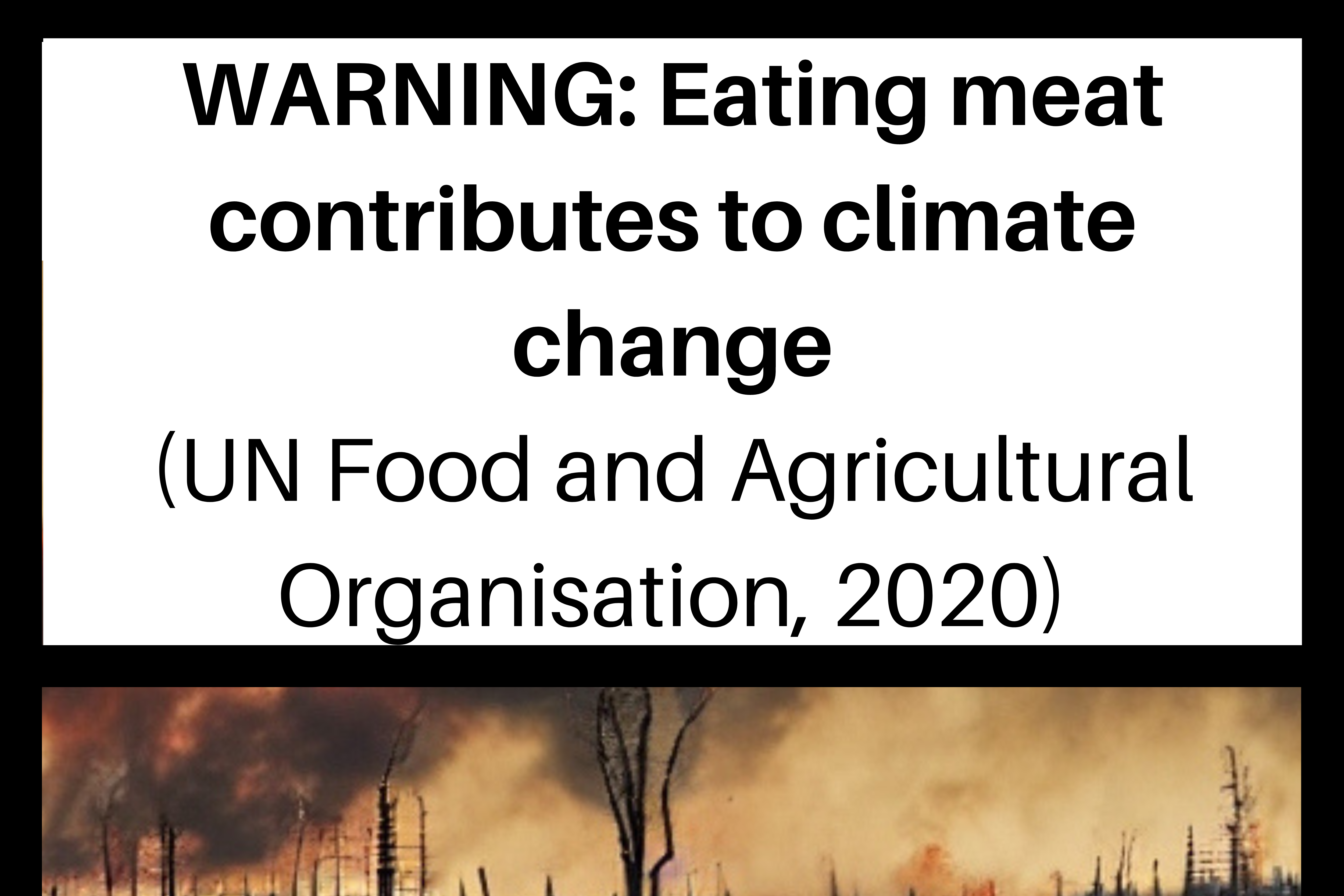Cigarette-style warning labels could reduce meat consumption, study finds
Researchers at Durham University looked at how warning labels could affect consumers’ choices.

Graphic health warnings like the ones on cigarette packets could help reduce meat consumption and benefit the environment, a new study has found.
Putting stark reminders about the effect that meat farming has on global warming would help consumers make healthier choices and reduce our carbon footprint, Durham University researchers suggested.
They tested a variety of warnings, including ones about climate change, health risks and even future pandemics, and all worked in discouraging people from selecting a meat-based meal.
Reducing our meat and dairy consumption by one fifth would help the UK meet its environmental commitments, the independent Climate Change Committee, which advises the Government, has said.
As warning labels have already been shown to reduce smoking as well as drinking of sugary drinks and alcohol, using a warning label on meat-containing products could help us achieve this if introduced as national policy
Psychology PhD student Jack Hughes carried out the food label research with supervisors.
He said: “Reaching net zero is a priority for the nation and the planet.
“As warning labels have already been shown to reduce smoking as well as drinking of sugary drinks and alcohol, using a warning label on meat-containing products could help us achieve this if introduced as national policy.”
For the study, 1,001 meat-eating adults were split into four groups and shown pictures of hot canteen-style meals which contained either a health warning label, a climate warning label, a pandemic warning label, or no label.
One label showed a deforested area, with factory smoke in the distance, and text saying: “Eating meat contributes to climate change”.
The interviewees were then asked a series of questions about what they would choose, how anxious the warnings made them feel and how believable they were.
People were also asked how supportive they would be of the different labels if they were implemented as policy.
Senior author on the paper Dr Milica Vasiljevic, from Durham University’s Department of Psychology, said: “We already know that eating a lot of meat, especially red and processed meat, is bad for your health and that it contributes to deaths from pollution and climate change.
“Adding warning labels to meat products could be one way to reduce these risks to health and the environment.”
Ensuring fairness in application, given the diversity of products and their varying impacts, presents a significant challenge
Reacting to the research, behavioural expert Professor Ivo Vlaev, who is a specialist in “nudge tactics”, said highlighting the negative consequences of consuming meat could be more effective than promoting the benefits of alternative choices.
There needs to be fairness in the messaging, the University of Warwick professor argued, saying: “The nuances and intricacies of implementation cannot be overlooked, as such interventions have the potential to be contentious.
“One could reasonably envision an organic chicken farmer in Shropshire taking issue with a label suggesting deforestation in the Amazon.
“Ensuring fairness in application, given the diversity of products and their varying impacts, presents a significant challenge.”
Bookmark popover
Removed from bookmarks